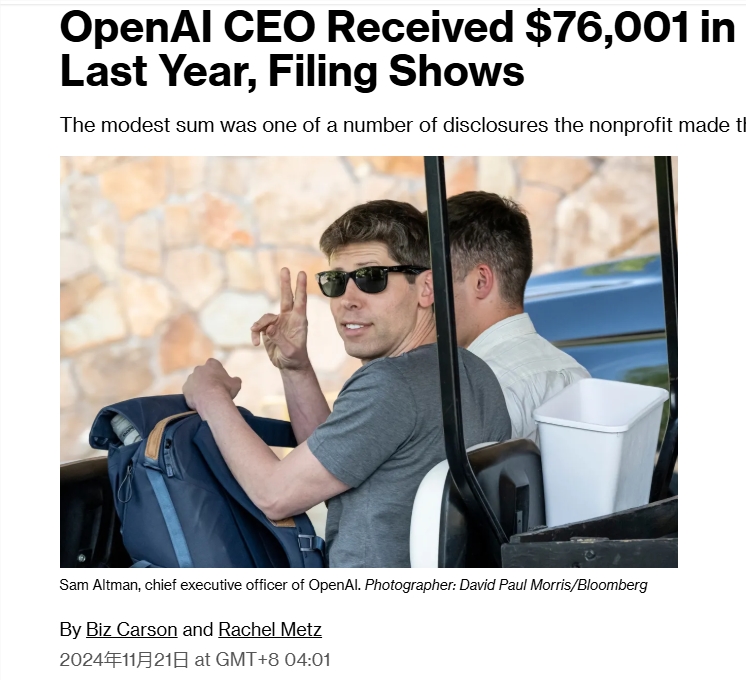OpenAI's recently released financial report disclosed its executive compensation as well as the company's financial status and charitable activities in 2023, triggering extensive discussions in the technology community on artificial intelligence companies' compensation strategies and social responsibilities. This report not only demonstrates OpenAI’s unique compensation culture, but also reflects the company’s rapid development while actively assuming social responsibility. In the report, CEO Sam Altman’s low salary is in sharp contrast to the compensation of other executives, and the company’s investment in philanthropy and academic research is also worthy of attention.
Compensation is often a hot topic in the technology world, and OpenAI's latest financial disclosures have once again attracted attention. Pay details at the high-profile artificial intelligence company reveal the unusual compensation strategy behind the tech giant.
Sam Altman's salary continues his consistent low-key style. In 2023, the OpenAI CEO will receive only $76,001 in compensation, a slight increase from $73,546 in 2022. It is worth noting that even though his net worth exceeds $2 billion, Altman still insists on receiving only "the minimum salary required to purchase health insurance."
More details about executive compensation also surfaced in OpenAI’s nonprofit tax filings. Company co-founder and former chief scientist Ilya Sutskever is among the highest paid, earning $322,201 in 2023. Emmett Shear, who served as interim CEO during Altman's brief dismissal, received only $3,720 in compensation, which is approximately $338.18 on a daily basis.

This financial report covers a highly unusual year for OpenAI. From the global artificial intelligence craze triggered by ChatGPT to the dramatic incident of Altman being dismissed from the board of directors and quickly returning, the company has experienced unprecedented turmoil.
Financial documents also revealed that OpenAI received $5 million in public donations in 2023 and had net assets of more than $21 million at the end of the year. That figure pales in comparison to the $6.6 billion the company raised in October.
In addition to its core business, OpenAI is also expanding its philanthropic investment scope. The company has provided ethics and journalism grants to New York University and funded research on economic opportunities in artificial intelligence through Atlanta’s Operation Hope. In addition, the company has funded a number of American universities, including Harvard College, the University of Washington, and the University of Michigan, to explore the democratic process of rule-making for artificial intelligence systems.
An OpenAI spokesperson said that these initiatives are in line with the company's charter and is committed to working with global research and policy institutions to jointly address the challenges posed by artificial intelligence.
This financial report not only demonstrates OpenAI’s unique compensation culture, but also reflects that technology companies are paying more and more attention to social responsibility and ethical governance while pursuing technological innovation.
All in all, OpenAI’s financial report provides us with a window into technology companies’ compensation structures, social responsibilities, and the current status of artificial intelligence development. In the future, OpenAI's balance between technological innovation and social responsibility will continue to attract attention.